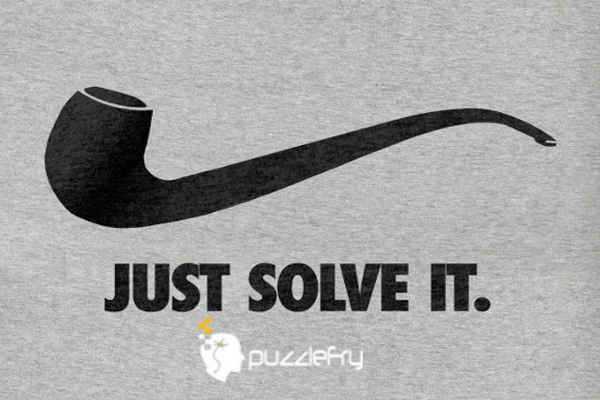Dropping 9-terms from the harmonic series
The harmonic series–that is, 1/1 + 1/2 + 1/3 + 1/4 + …–diverges. That is, the sum is not finite. This is in difference to, for example, a geometric series–like ½0 + ½1 + ½2 + ½3 + …–which converges, that is, has a finite sum.
Consider the harmonic series, but drop all terms whose denominator represented in decimal contains a 9. For example, you’d drop terms like 1/9, 1/19, 1/90, 1/992, 1/529110. Does the resulting series converge or diverge?
Hint: More generally, you may consider representing the denominator in the base of your choice and dropping terms that contain a certain digit of your choice.
Consider again the harmonic series, but drop a term only if the denominator represented in decimal contains two consecutive 9’s. For example, you’d drop 1/99, 1/992, 1/299, but not 1/9 or 1/909. Does this series converge or diverge?
or the first question, the resulting series will converge. To see why, note that the terms that are dropped from the series are of the form 1/(n*10^k + 9), where n is a positive integer and k is a non-negative integer. We can bound each of these terms as follows:
1/(n10^k + 9) <= 1/(n10^k) = 1/n * 1/(10^k)
The series of 1/n converges by the integral test, and the series of 1/(10^k) converges to 1/9, since it is a geometric series with common ratio 1/10. Therefore, the series obtained by dropping the terms containing a 9 in the denominator is bounded above by a convergent series, and hence it also converges.
For the second question, the resulting series will still diverge. To see why, note that the terms that are dropped from the series are of the form 1/(n*10^k + 99), where n is a positive integer and k is a non-negative integer. We can write this as:
1/(n10^k + 99) = 1/(n10^k) * 1/(1 + 99/(n*10^k))
As before, the series of 1/(n10^k) converges by the integral test. However, the series of 1/(1 + 99/(n10^k)) diverges, since it is a series of terms that are greater than or equal to 1/100 for sufficiently large n. Therefore, the series obtained by dropping the terms containing two consecutive 9’s in the denominator still contains a divergent subseries, and hence it also diverges.
Your Answer
More puzzles to try-

What is the logic behind these ?
3 + 3 = 3 5 + 4 = 4 1 + 0 = 3 2 + 3 = 4 ...Read More »
Defective stack of coins puzzle
There are 10 stacks of 10 coins each. Each coin weights 10 gms. However, one stack of coins is defective ...Read More »
Which clock works best?
Which clock works best? The one that loses a minute a day or the one that doesn’t work at all?Read More »
(Advanced) Cheryl’s Birthday Puzzle
Paul, Sam and Dean are assigned the task of figuring out two numbers. They get the following information: Both numbers ...Read More »
Five greedy pirates and gold coin distribution Puzzle
Five puzzleFry ship’s pirates have obtained 100 gold coins and have to divide up the loot. The pirates are all ...Read More »
Magical flowers!!
A devotee goes to three temples, temple1, temple2 and temple3 one after the other. In front of each temple, there ...Read More »
Tuesday, Thursday what are other two days staring with T?
Four days are there which start with the letter ‘T‘. I can remember only two of them as “Tuesday , Thursday”. ...Read More »
How could only 3 apples left
Two fathers took their sons to a fruit stall. Each man and son bought an apple, But when they returned ...Read More »
How Many Eggs ?
A farmer is taking her eggs to the market in a cart, but she hits a pothole, which knocks over ...Read More »
HARD MATHS – How much faster is one train from other Puzzle
Two trains starting at same time, one from Bangalore to Mysore and other in opposite direction arrive at their destination ...Read More »
Most Analytical GOOGLE INTERVIEW Question Revealed
Let it be simple and as direct as possible. Interviewer : Tell me how much time (in days) and money would ...Read More »
Lateral thinking sequence Puzzle
Solve this logic sequence puzzle by the correct digit- 8080 = 6 1357 = 0 2022 = 1 1999 = ...Read More »
How did he know?
A man leaves his house in the morning to go to office and kisses his wife. In the evening on ...Read More »
Pizza Cost Math Brain Teaser
Jasmine, Thibault, and Noah were having a night out and decided to order a pizza for $10. It turned out ...Read More »
Which letter replaces the question mark
Which letter replaces the question markRead More »
Which room is safest puzzle
A murderer is condemned to death. He has to choose between three rooms. The first is full of raging fires, ...Read More »
Richie’s Number System
Richie established a very strange number system. According to her claim for different combination of 0 and 2 you will ...Read More »
Srabon wanted to pass
The result of math class test came out. Fariha’s mark was an even number. Srabon got a prime!! Nabila got ...Read More »
Become Normal!!
Robi is a very serious student. On the first day of this year his seriousness for study was 1 hour. ...Read More »
Sakib Knows The Number!
Ragib: I got digits of a 2 digit number Sakib: Is it an odd? Ragib: Yes. Moreover, the sum of ...Read More »



